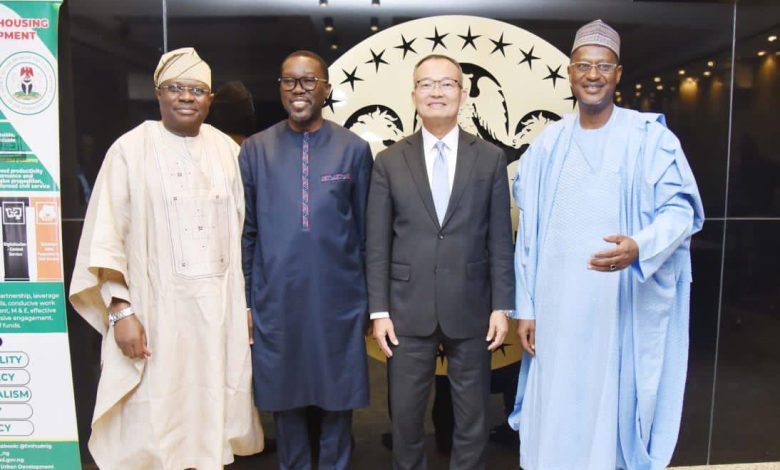Nigeria, World Bank partner to unlock $300bn in undocumented land

The Ministry of Housing and Urban Development and the World Bank Group have agreed to collaborate on registering and titling Nigeria’s vast unregistered land assets, estimated to be around 90% of the country’s total land area.
This move aims to make the land more economically viable and unlock the estimated $300 billion in “dead capital” tied up in undocumented land.
The partnership was announced during a visit by a World Bank delegation led by Vice President (Infrastructure) Guangzhe Chen to the Minister of Housing and Urban Development, Ahmed Dangiwa, in Abuja on Wednesday, September 11.
According to the ministry, the collaboration will focus on addressing the significant challenge of unregistered and untitled land in Nigeria, which has hindered the country’s economic growth and development.
The key areas of collaboration include:
· The National Land Registration and Titling Programme, in partnership with state governments
· Registering, documenting, and titling all land parcels within five years
· Developing and launching a National Digital Land Information System (NDLIS)
· Defining a framework for accessible land information
· Increasing formalization of land transactions from less than 10% to over 50% in the next 10 years
· Training and deploying technically competent land registration officers nationwide
Minister Ahmed Dangiwa emphasized the importance of this initiative, stating that “Experts estimate a dead capital of over $300 billion. Through this initiative… we aim to unlock this potential and drive economic growth and development.”
He further highlighted the potential benefits of the initiative, saying that the funds generated can be used to provide urban services in states, helping to minimize the effects of climate change across cities in Nigeria.
Dangiwa cited examples of successful land registration systems in Kaduna and Nasarawa states, which have improved land registrations and generated significant revenues.
Additionally, the Minister addressed the issue of Urban Liveability, another area of common interest, noting that the implementation of the approved National Urban Development Policy is a key priority of the President Bola Tinubu administration. He emphasized the need for effective frameworks to improve the management of urban areas and service delivery, seeking the World Bank’s technical capacity to support this effort.
Guangzhe Chen noted that the World Bank has developed models and worked with countries in West and Central Africa on urban liveability and resilience, which can be reviewed and replicated in Nigeria. He also expressed the World Bank’s openness to providing financing and technical support to the ministry to help the government achieve its housing and urban agenda.
Country Director Ndiame Diop assured that the priorities outlined will be looked at by both teams, fine-tuned, and developed into comprehensive programmes.
In his closing remarks, Permanent Secretary Dr. Marcus Ogunbiyi solicited support from the World Bank in the area of capacity building to ensure the successful implementation of the collaboration.





